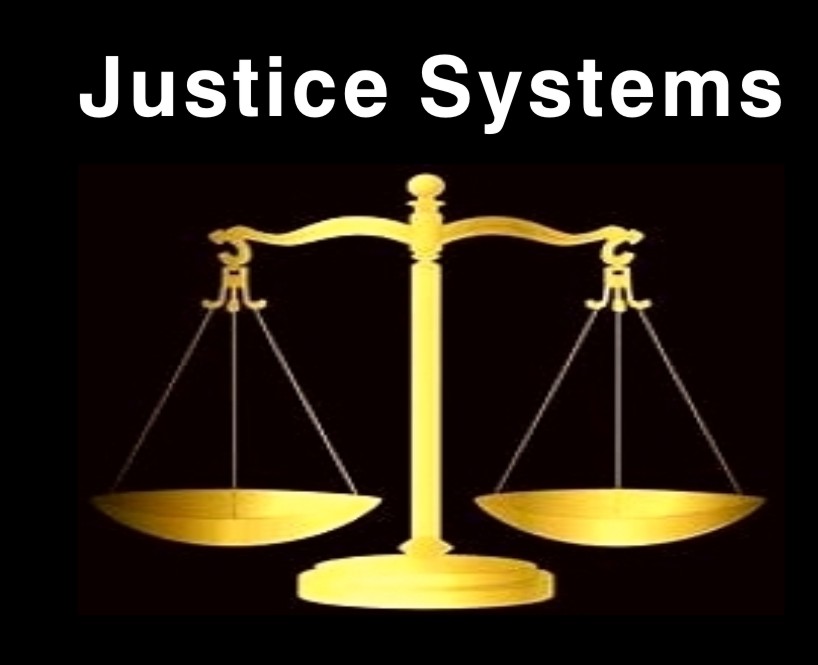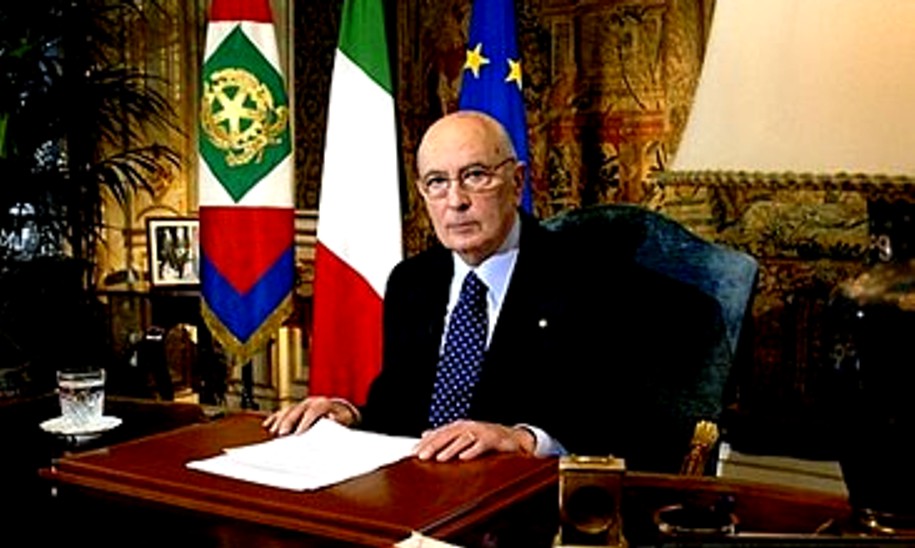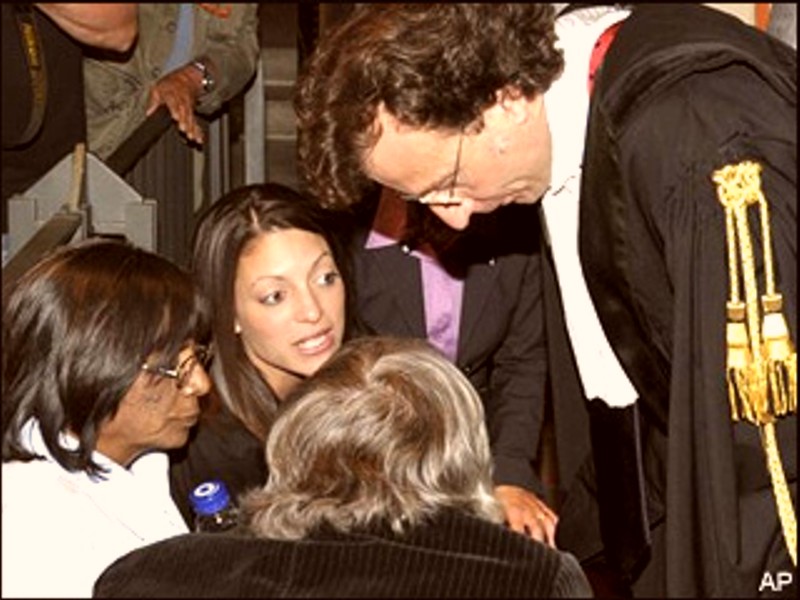
Category: Trials 2008 & 2009
Did The State Department Offer Assurances To Knox She Never Would Be Extradited?
Posted by Ergon
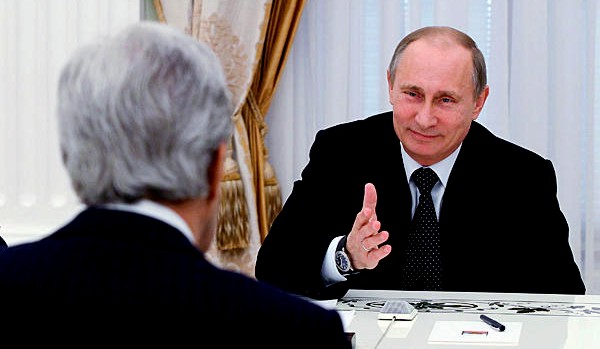
US Sec of State Kerry (discussing Snowden) really needs extraditions to work
1. Overview
This is the first of two posts on the real source of an increasing flow of anonymous but seemingly official State Department claims that Knox’s extradition is not in the cards
2. The Current Italy/US Extradition Treaty
As repeatedly explained here by posting lawyers the Italy/US treaty is deliberately written to exclude any politics.
If either nation has arrived at a guilty verdict of someone currently in the other nation by following its own laws, then the other nation deliberately has no legal option but to extradite them to serve their term.
So far neither nation has ever refused to do what the treaty says and so far politics has never intervened. That helps both nations in pursuing other extradition cases around the world.
3. Claims By An Anonymous Source
“Will Amanda Knox Be Dragged Back to Italy in Murder Case?” This was by Nina Burleigh in a cover story in Newsweek on March 19, 2015 quoting an anonymous source.
A State Department source tells Newsweek that diplomats in both Italy and the U.S. expect an extradition request to be denied: “I don’t think either Italy or the U.S. wants a major burr under our saddle in terms of relationships between our countries, and this would be that, if the Italians pushed it.” If they do, the source adds, there “is not any way” the U.S. will arrest Knox, nor will it have her declared a fugitive.
The elected Italian government in Rome is separate from the judiciary, and traditionally the two branches do not have warm relations. “I know the Italian government was rolling its eyes” over the prospect of the case reaching this phase, the State Department source says, adding that Rome faces “a real political problem” if the judiciary requests extradition. The American diplomat predicts the Italian court won’t ask to extradite.
It seems that ever since Amanda Knox was wrongfully acquitted by the Hellmann appeals court of Perugia in 2011 we have been inundated with unsourced reports that “the United States would never extradite Amanda Knox.
Going back several years to the Daily Mail, Guardian, The Express and various American media, they all seemed to be reading from the same script:
- She hadn’t received a fair trial.
- American public opinion would “˜never allow her to be sent back”.
- The Secretary of State would quietly prevail upon his counterpart in Italy to not request extradition.
And, as the final appeal of Amanda Knox and Raffaele Sollecito came up to the last stretch it seemed that these same hacks were repeating the same talking points, even though much has changed since 2011.
These were the basic points, reported over and over in the main stream media till it almost seemed like a guarantee. So I have been looking for the last three years to verify the truth of that. And, who made that promise, if any were made? These were the basic parameters of my search, and I had to tune out the background noise of “˜double jeopardy” and “˜dueling extradition experts”.
Then I had to look for the “˜unnamed source” quoted in all the news reports.
These possibilities came up:
- WA US Senator Maria Cantwell spoke to her colleague Sen. John Kerry of the Senate Foreign Relations Committee who spoke to his brother in law David Thorne, the former US Ambassador to Rome, who passed on a quiet message to the Italian Foreign minister. But would they ever speak on or off the record to reporters or like it very much if it was going to be bruited about?
- Mid-level Friends Of Amanda Knox like Anne Bremner and Judge Heavey had received vague assurances from Senator Cantwell; somehow extrapolated as iron clad guarantee that Knox would never be extradited, never mind there has not been any precedent I can find that would apply to a similar case like this.
- Someone in the Department of Justice and/ or State is feeding them shite.
- The FOA are making it all up. That last was my favourite, given that they are led around by people like Steve Moore, Bruce Fischer, and J. Michael Scadron.
4. My Search For The Truth
This has been an interesting journey, and as always, things seem to just come together at the last moment. It has helped that I have been watching diplomatic activity up-close all my life.
My father was in the Pakistani Foreign Service stationed in London, so, shortly after I was born, lived in the UK from age 0-3, then with the Pakistan Embassy in Tokyo from age 3-8. We were a cosmopolitan group of embassy brats going to St. Mary’s International School.
My friends were American, Iranian, Turk, Indian, East German, Canadian, New Zealand, points all over. Their parents were all diplomats and I made lifelong friends. My father could have received a posting as assistant to the ambassador to Washington D.C. after that but fate prevailed as he’d been stationed out 8 years and had to be rotated back to Pakistan.
Since that time I kept in touch with my friends and also developed this passion for International Relations and Geopolitics. Traveling to the US and other countries but also meeting over the internet, made many more friends at various levels of the State Department. Saw the changes there as respected career diplomats got replaced by interest groups and major donors to political parties. Such only went to choice postings, of course, but not second or third world countries, so I had many interesting discussions with them over the years.
The Wikileaks cables were a revelation as Embassy intercepts showed the thousand different ways diplomacy led to but also tried to prevent, war. I’d been reading them ever since they first came out so started searching for links to secret discussions with Amb. Thorne. Couldn’t find anything except what already was reported, so reporter Andrea Vogt’s FOI request find was a goldmine:
NEWLY RELEASED EMBASSY CABLES SHED LIGHT ON STATE DEPT HANDLING OF AMANDA KNOX CASE
By Andrea Vogt
FEBRUARY 13 “Newly released state department documents show the U.S. Embassy in Rome declared the Amanda Knox matter “Case Closed” in a cable to Washington just days after the American’s clamorous 2011 acquittal. The memo reveals wishful thinking on the part of some U.S. diplomats, who were only too eager to see the thorny case come to a clean close.”
In Update March 23, 2015 posted today, Andrea Vogt says this:
In a 2011 Italian embassy cable released as part of several Freedom of Information Act requests I’ve filed on this case (first published Oct 11, 2011) [US] diplomats in Italy mistakenly thought Knox’s acquittal in 2011 would bring to a close this complex and divisive international case. Italy’s Court of Cassation would prove them wrong, overturning her Perugia acquittal and ordering a second appeal in a different venue (Florence) which ended last year with a guilty verdict.
So is a political fix being attempted or already in? See my Part Two Conclusion to be posted next.
The Chief Enforcer Of The Constitution And The Rule Of Law is Wildly Popular Throughout Italy
Posted by Peter Quennell
President Giorgio Napolitano’s popularity rating is at 80% and rising. In sharp contrast, Prime Minister Berlusconi’s is at 30% and falling
Italians invariably take their constitution and their justice system very seriously and they have good reason to be proud of those institutions. Although the President’s daily duties are mostly ceremonial David Willey of the BBC explains his very key powers in those areas.
He is the person who has to appoint a new prime minister every time there is a government crisis. And he is the guarantor of Italy’s constitution, hammered out immediately after World War II by the founding fathers of the republic following two decades of Fascist rule.
He is said to receive dozens of petitions a day and in certain cases he does act to get things done. Significantly, two that he chose to ignore recently concerned the ongoing Sollecito-Knox appeal process.
Of two pretty blatant attempts to bias the Perugia process, one came from Joel Simon of the US-based Committee to Protect Journalists, and one came from the junior Berlusconi-party MP Rocco Girlanda.
President Giorgio Napolitano simply ignored both of them.
The Italian prime minister also seems to be sitting this one out, as the painstaking process of justice for Meredith rolls on.
A Token Balance In The Italian System: The Voice In The Court For The Victim
Posted by Our Main Posters
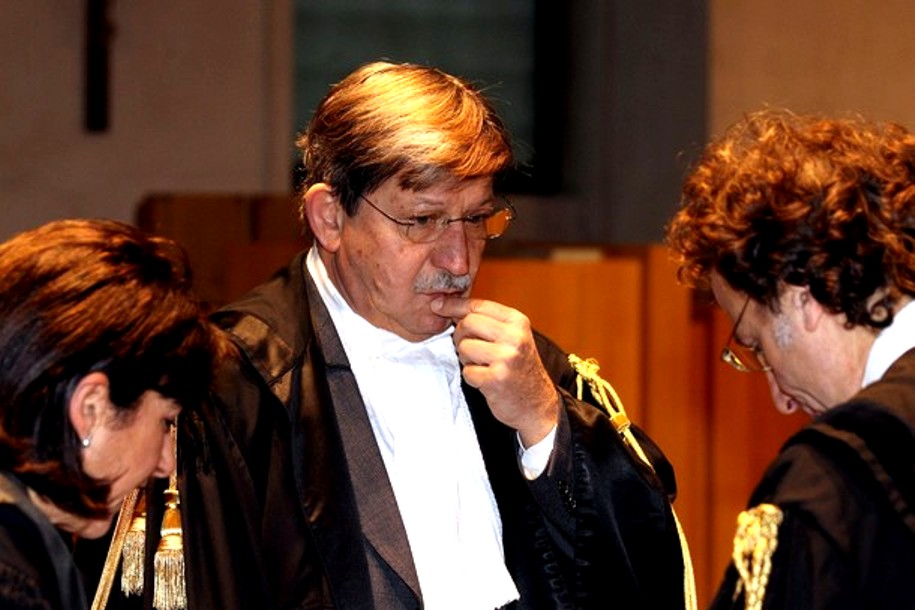
[Above: Francesco Maresca with the Lead Appeal Prosecutor Giancarlo Costagliol and Ms Comodi]
We have often posted before on the pronounced tilt toward defendants’ rights in the Italian court system.
The Italian criminal justice system is just about the only one in Europe that has not yet adapted to the 2001 directive of the European Court that was asking for equality in criminal trials.
As we can see in this case, the system is extremely pro-defendant.
Police and prosecutors have to jump through a large number of hoops. Judge after judge combs through the evidence. Defendants can get up and talk in court at the nod of a judge without being cross-examined.
Defendants never have to take an oath to tell the truth. Judges in effect have to be part of the jury and to stake their reputation on the outcome of every case, the reasoning of which they must describe in writing.
No-one is conclusively declared guilty until two appeals have been concluded. The second appeal is to the Supreme Court of Cassation in Rome, which seems to be sitting on more appeals now than the rest of the western world put together. Just about all prison sentences of under three years are waived.
And that is just for starters. One outcome is a prison population proportionally less than 1/4 that of the United States.
Many Italians feel that this fairness or leniency - call it what you will - has gone way too far, and Prime Minister Berlusconi’s attempts to press the fairness or leniency even further are wildly unpopular.
We posted recently on the tireless Italian campaigner for a stronger assertion of victim’s rights Barbara Benedettelli and she has a new book out on various cases. She has also sent us some background material on the generic issue which we intend to build into a post.
Against this tsunami of systemic pro-defendant bias in Meredith’s case, we really only have the fortitude of the police and the prosecutors involved, and the systemic presence of the lawyer representing the interests of the victim and her family: Mr Francesco Maresca, who practices law in Florence.
Although his English is said to be hesitant - which means the English media don’t usually track him down for any soundbites - he seems to us to be tirelessly aggressive in the court in standing up to the many impromptu interventions of the three perps and the fireworks of their six-plus lawyers.
Here is an interview with Mr Maresca in yesterday’s Umbria Left which was kindly translated by our poster Tiziano.
The lawyer for the Kercher family: Alessi and Avielli contradicted.
“Guede confirms the presence of the accused in the house of the crime. We have heard witnesses who contradicted Mario Alessi and Luciano Aviello.” Thus said lawyer Francesco Maresca, lawyer for the family of Meredith Kercher, at the end of the hearing of the appeal trial of Raffaele Sollecitoand Amanda Knox.
“Witnesses which,” he added “we could have however done without, heard only because it was necessary from a procedural point of view.” Lawyer Maresca claimed, “Regarding Rudy Guede, this person confirmed what he wrote in the letter to his defence lawyers. And to the specific question whether it was an opinion of his, he replied ‘no, it’s what I experienced that night’.
“In my opinion Guede once again confirmed the presence of all three accused at the site of the murder that night. It seems to me the truth of a co-accused already found guilty. To me it appeared absolutely clear,” Maresca concluded.
Another one landed for Meredith by her lone ranger in the court.
Harvard Political Review Writer Alex Koenig Reproaches The Sliming of Italy’s Justice System
Posted by Peter Quennell
With the Pepperdine University and Washington University student newspapers consistently mis-reporting Meredith’s case, it is nice to see a Harvard publication getting it seriously right.
Alex Koenig writes a column for the Harvard Political Review. He is not commenting on the evidence of Meredith’s case as reflected for example on TJMK and in Massei. But he takes several deadly cracks at the arguments of the conspiracy theorists, which he doesn’t see reflecting the real world.
In 2008, 16,277 people were murdered in the United States. 1,176 of these murders were committed by women, of which about a third were confirmed to be white.
That means that in one year there were around 400 white female murderers on US soil”” the majority of whom were convicted to no public outcry. What America needs to ask itself is: does the fact that Amanda Knox is a white sorority sister exonerate her from the murder she is alleged to have committed on foreign soil?
Knox is currently serving a 26-year sentence in Italian prison, in Perugia, for the murder of her then-roommate Meredith Kercher. Seemingly lost among the outrage towards the Italian justice system, the demands of US government intervention in her defense, and the constant assertions of Knox’s innocence is the possibility that, maybe this once, the trained professionals who investigated, tried, and convicted the 23 year old Knox got it right.
Without getting into the facts of the case, and conceding that people are wrongly convicted on a regular basis both in the United States and abroad, we must consider just how America’s treatment of this case reflects upon our society.
The fact of the matter is, those that immediately claim that Knox was wrongly accused and jailed by a corrupt justice system make two extremely arrogant assumptions that reveal perverse American exceptionalism.
1) It is assumed that, as an American ““ an American woman no less ““ Knox is incapable of murder. This case differs, of course, from the 1,176 domestic murders committed by women because, well, who knows?
2) It is assumed that not only is the Italian justice system incapable of fulfilling its legal duties, but that the intentions of the court were swayed by anti-Americanism.
This is not merely an abstract sentiment, but was actually articulated by Senator Maria Cantwell (D) of my home state of Washington. Cantwell, whom I generally agree with ideologically, released a statement saying that she “had serious questions about the Italian justice system and whether anti-Americanism tainted the trial.” She went on to say that she would seek assistance from Secretary of State Hillary Clinton.
Regarding the first problem, I take Knox’s assumed innocence in the public eye to be a representation of national pride. I am as proud to be American as the next guy; I understand all the benefits being American has afforded me and appreciate the sacrifices men and women make each day to ensure that these benefits remain for me and my countrymen.
But assume the superiority of the same countrymen when compared to other citizens of the world I do not. It is as if Knox’s co-citizenship has absolved all her sins in the American court of public opinion. This, by itself, is difficult to grasp but can be forgiven.
What’s harder to forgive is the assumption that Knox has been wronged by a corrupt system because she is American.
Having lived in Italy for a year, I would never accuse the Italian justice system of being exceedingly efficient or flawless. However, I wouldn’t accuse the US justice system of this either.
Anti-Americanism does exist in parts of the world, but the chances of it being present in this trial are low. Are the judges supposed to see the conviction of an innocent American college student as a way to deter American tourists from coming to Italy?
“Putting this girl away for 26 years seems to be an easy way to get rid of those annoying tourists with their stupid hotel rooms, airplane tickets and restaurant bills. Good riddance!”
It’s not as if Knox is accused of murdering an Italian either. Kercher was a Brit. Raffaele Sollecito and Rudy Guede, Knox’s alleged accomplices who are both serving similar sentences for the same charges, are both Italian, although Guede emigrated from the Ivory Coast when he was five.
No, I doubt that anti-Americanism was involved in this conviction. It seems, instead, to be nationalism on the side of Knox’s supporters. Amanda couldn’t have possibly been the one at fault, she’s one of us.
And maybe they’re right. I really don’t know. What I do know is that the anger and offense that the American public has taken in response to this trial obscures the real tragedy at hand, the violent death of a young woman.
It’s possible that Knox has wrongly had her future taken from her. It’s a fact that Kercher has. As the appeal process continues and the story gradually slips out of the consciousness of the average American, with the protest left to the truly passionate among us,
I want to remind us all of one thing: Italy’s murder rate is 1/3 that of America. Perhaps, without the actions of one American there’d be one less death in Italy’s tally. I’ll leave that judgment up to the only court that really matters in such a case, the court of law.
One small correction to what Alex Koenig wrote. Italy’s murder rate is actually 1/6th that of the United States. It is a very law-abiding country with a very low crime rate and a very small prison population - less than 1/20th that of the United States.
But Alex is certainly right in his conclusions.Neither the Micheli not Massei Sentencing Reports show ANY sign of extreme nationalism.
Why The Italian Judiciary Is Probably Less Prone to Pressure Than Any Other In The World
Posted by Commissario Montalbano

Image above: The Consiglio Superiore della Magistratura in session
Some of the very best lawyers in the UK and USA and around the world are learning a lot about the Italian system by way of the Perugia trial - and are in many, many ways impressed.
Italian magistrates enjoy an extraordinary level of autonomy from the other powers of government (executive and legislative) and the point of this post is to explain why. This autonomy is above all due to the Italian constitutional framework.
That framework is intended to guarantee such an exceptional level of independence so as to avoid the abuses that occurred during Mussolini’s fascist regime, when Italian magistrates were forced by the executive to prosecute (and persecute) political opponents to the fascist dictator.
The source of such independence is set forth in Title IV of the Italian Constitution which in particular provides for an independent body [image at top here] which is called the “Consiglio Superiore della Magistratura” or C.S.M. (Superior Council of Magistrates). This is the self-governing body for Italy’s judiciary, and it comprises ordinary (civil and criminal) judges and prosecutors.
Its competence is based upon Articles 104 and 105 of the Italian Constitution, as well as several ordinary laws. Article 105 says that the C.S.M. is responsible for the hiring, training, assignments, transfers, promotions, appointments to the Supreme Court of Cassation, disciplinary actions and terminations of all Italian judges and prosecutors.
Article 104 opens with the statement: “Magistrates constitute an order autonomous and independent from any other power”. The article then proceeds to provide norms relating to the composition of such a self-governing body.
In order to guarantee the independence of magistrates and in accordance with the general principle of the balance of powers, the constitution establishes a mixed composition of the members of the CSM.
According to the constitution, two thirds of its components are in fact judges elected by all magistrates (judges and prosecutors) in special nationwide elections of the CSM (these are called “membri togati”, i.e. judicial members).
And one third is chosen by Parliament among law professors and attorneys with at least 15 years of experience (these are called “membri laici”, i.e. lay members). And in addition, there are three so called “˜De Jure’ members:
- the President of the Republic, who is the President of the CSM
- the President of the Supreme Court of Cassation
- the General Prosecutor before the Supreme Court of Cassation
The CSM then elects the Vice President of the Council choosing among its lay members appointed by Parliament. The Vice President is the real acting President of the CSM, since the role of the President of the Republic is primarily symbolic. The current Vice President of the CSM is Nicola Mancino [image below} who is a former Speaker of the Italian Senate.
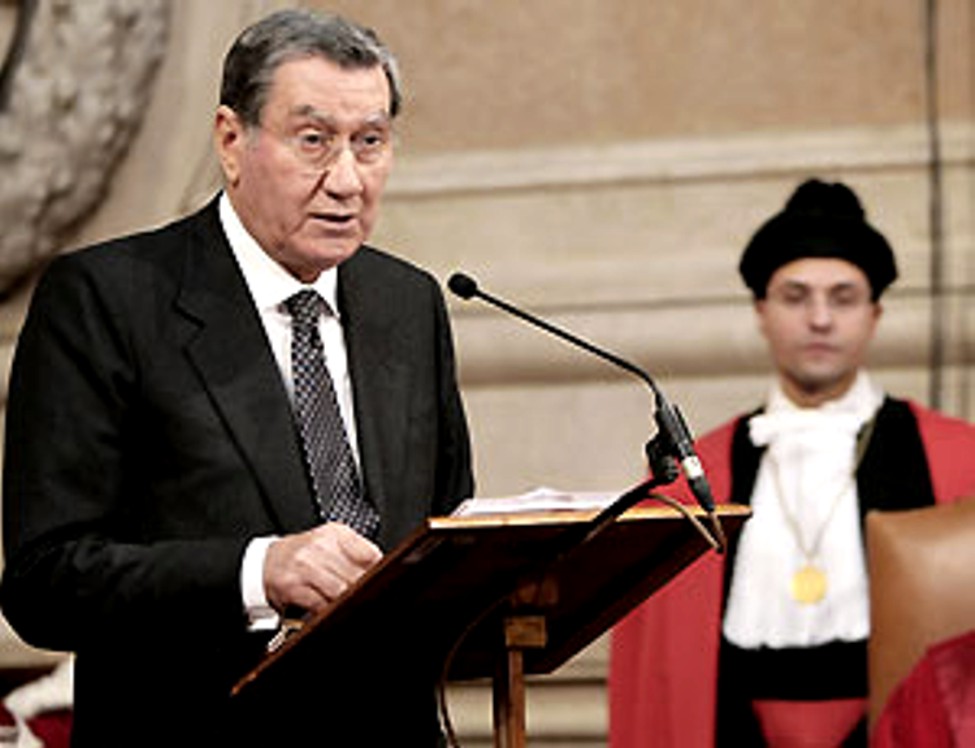
Image above: Nicola Mancino, Vice President of the C.S.M., addressing the Council
The constitution establishes the above mentioned proportions, but not the number of members. However a law passed in 2002 sets the number of elected members at 24. Therefore at present there are 16 members (all judges) elected by magistrates and 8 members appointed by Parliament. With the three “De Jure” members the total is therefore 27 members.
The position of member of the CSM is incompatible with that of legislators, therefore CSM members cannot be members of Parliament or members of the Regional Assemblies.
Art. 107 reiterates the extraordinary independence of magistrates (judges and prosecutors) by stating: “Magistrates are not removable. They may not be dismissed or suspended or transferred to other locations or functions if not after a decision of the CSM, adopted either for reasons and with the guarantees established by law or with the magistrate’s consent.”
Ordinary laws also confer other powers to the C.S.M. including the power of giving opinions to the Government and to Parliament on proposed laws affecting the order of magistrates and the judiciary in general.
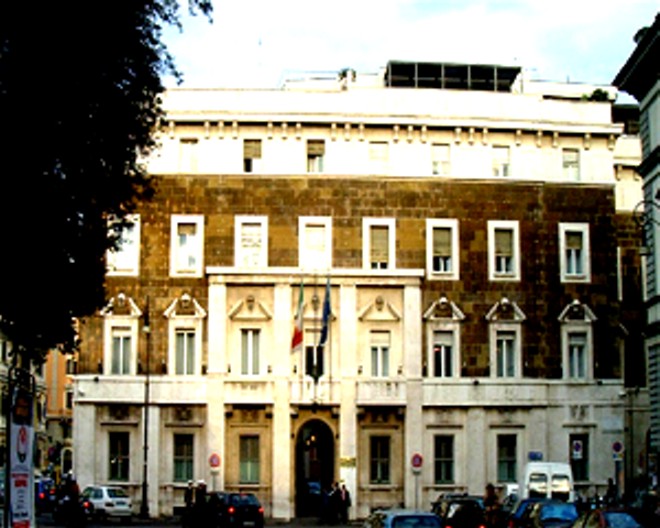
Image above: Palazzo dei Marescialli in Rome. The Seat of the C.S.M.
The extraordinary independence of Italian magistrates, especially considering that Italy is probably the only country in the world where not even State prosecutors report to the executive power, has created a lot of tensions between magistrates and politicians.
The Italian Prime Minister, Mr Silvio Berlusconi, who is indicted and undergoing prosecution in over twenty separate cases, some of which already concluded (for bribing of judges, illegal campaign financing, tax evasion, fraudulent accounting) dating back to the time before he entered politics in 1994, has often accused magistrates of having proceeded against him for politically motivated reasons.
His pressures on the CSM to discipline those magistrates whom he alleges are politically motivated in their prosecutions against him, have not succeeded, and the CSM has always defended the actions of magistrates against the frequent attacks from the executive power and from the many politicians who are under investigation for corruption and other crimes.
Recently Mr Berlusconi’s coalition passed a law to guarantee immunity from prosecution to the four highest offices of the Republic, including that of the Prime Minister, but the Supreme Constitutional Court struck it down as unconstitutional.
Currently out of 945 Members of Parliament in the two houses, there are about two dozen convicted felons and over 70 more under investigation by Italian magistrates. They’re all holding to their seats very tightly, since all members of the Italian parliament are immune from arrest, if not from prosecution.
Pressure on this extremely powerful and immune judiciary has not worked where real heavy-handed political and media persuasion was attempted. Be assured, the judiciary in Perugia will take no notice of it at all.
Why The Prosecutors In Italy Are Relatively Popular
Posted by Peter Quennell
Italy’s a tough country with, albeit dwindling now, a legacy of violent crime, and many brave prosecutors over the years have been assassinated.
And the Italian legal system is not particularly weighted in their direction, with a large number of hurdles they have to climb over before a case ever gets to trial.
And the Italian prison system is relatively lenient, heavily pro-prisoner-remediation and early release, and proportionally only 1/10 the size of the US’s.
So the endemic attempts to undermine Prosecutor Mignini have invariably won only MORE popular support for him and his case in Perugia and Italy in general.
And the only “criminal charge” against him (it isn’t) seems to flow from his guessing right in the Monster of Florence case - and apparently no charge of this kind has ever won a “conviction”.
Above is Milan Prosecutor Armando Spataro.
He is in the news now because he has demanded prison sentences for TWENTY-SIX Americans.
Between them they seem to have colluded in grabbing Osama Moustafa Hassan Nasr, an Egyptian in Italy, back in President Bush’s day, and taking him off to be tortured.
Not to the United States where torture is not legal, but to Egypt where it more-or-less is.
Human rights advocates charge that renditions were the CIA’s way to outsource the torture of prisoners to countries where it was practiced.
The CIA has declined to comment on the Italian case, and all the Americans are being tried in absentia and are considered fugitives.
As we remarked in this post it is pretty hard for a foreign government and especially now the American government to throw sand in the Italian wheels of justice.
The American government is really just sitting this one out. And it may be covertly delighted when Amanda Knox and her clan fade to silence.
